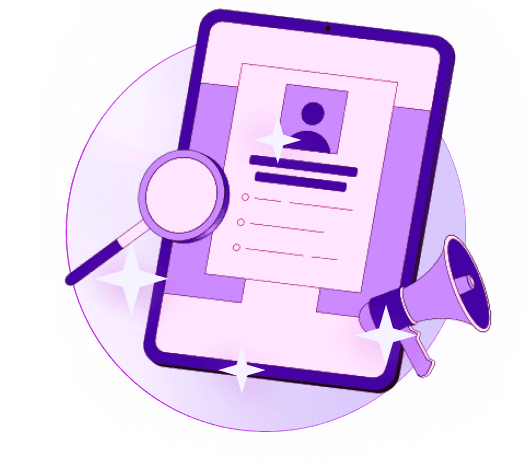Blogs
Articles

The Future of AI Sales Agents: Trends and Predictions for 2025
AI Sales Agents are evolving faster as trust in autonomous AI operations grows, with 77% of workers believing in eventual AI autonomy. Organizations have solid reasons for this confidence—AI agents help cut operational costs by up to 90% for routine customer service tasks.
This piece examines how AI sales agents continue to evolve, the ways organizations build trust in these systems, and their role in transforming sales workflows in industries of all types.
How AI Sales Agents are evolving in 2025?
AI sales agents in 2025 have grown way beyond simple chatbots of previous years. Today, nearly three-fourths (74%) of US C-level executives believe AI agents will play a role in their businesses this year. Companies are adopting these technologies faster than ever. Recent data shows about 50% of organizations plan to adopt AI agents next year, and 82% expect to combine them within 3 years.
From reactive bots to proactive agents
The biggest change in AI sales development comes from the switch between reactive and proactive systems. Traditional bots followed predefined rules and scripts. Modern AI agents predict needs and act before anyone asks. These advanced systems process context and understand the complete picture of past decisions and ongoing projects. They also use a "memory stack" that connects multiple sessions. This creates a continuous thread of business intelligence across weeks and months.
Proactive AI agents understand more than just words. They grasp the complete context of conversations. They spot needs in real-time and take immediate action. To name just one example, see how an AI creates and assigns a Jira ticket during a meeting when someone mentions needing one.
Rise of multi-agent collaboration
The emergence of multi-agent systems marks a revolutionary development. Companies now deploy coordinated teams of AI entities instead of relying on a single AI assistant. Each AI handles specific tasks like data mining, customized messaging, or campaign analysis.
Early adopters report that multi-agent AI SDR teams perform much better than single-bot solutions. The benefits include:
Modularity and specialization: Each agent handles specific tasks, reducing bottlenecks
Enhanced problem-solving: Combined specialized agents solve complex problems more effectively
Scalability: New agents can be added as business needs grow
Integration into everyday sales tools
Modern AI sales agents combine smoothly with existing sales technology stacks. They connect with CRMs, data platforms, and sales enablement solutions. This gives them access to conversation content, pipeline stages, and customer information. Sales professionals save up to 2 hours and 15 minutes daily on manual tasks.
The data shows that 80% of sellers who reached or exceeded 150% of quota use AI sales tech at least once a week. These systems handle lead generation, qualification, customized communication, and accurate forecasting. They also minimize data entry mistakes.
Companies using these AI solutions have cut customer service costs by 35% while increasing revenue by 32%. This proves why future AI sales agents need both advanced capabilities and complete integration into the sales workflow.
Building Trust in AI Sales Agents
Trust forms the foundation of successful AI sales implementations. Research shows that 59% of customers tend to trust AI solutions more when human rights experts help develop them. This highlights how important credibility is in today's fast-moving digital world.
Why explain ability matters in sales AI
Explainable AI creates transparency that helps sales teams adopt these systems. Sales professionals often rely on gut instinct rather than using advanced sales systems that don't explain their recommendations. Teams use the technology better and give more informed feedback when they understand the logic behind AI suggestions.
Clear explanations make troubleshooting faster too. A company used explainable AI and found that their lost deals came from a product specification issue they hadn't noticed before. They fixed the problem right away instead of letting it stay hidden for days.
Security and governance in agentic systems
AI agents—systems that achieve goals on their own with minimal human guidance—need strong governance frameworks. These agents can spread bias, break privacy rules, and cause collateral damage without proper oversight.
Good governance has centralized policy management, data lineage tracking, and continuous monitoring. These protective measures become more crucial as AI agents access sensitive customer data and critical systems that cyber threats often target.
Human-in-the-loop for high-stakes decisions
Human oversight becomes essential for sensitive tasks like fund transfers or customer data changes. Companies use push-based approvals where high-risk actions need user confirmation before moving forward. On top of that, workflow batching lets users review and approve multiple agent steps at once instead of checking every minor task.
How AI Agents are changing sales workflows?
Sales professionals today spend only 28% of their time actually selling. Administrative tasks consume the rest. AI sales agents are changing this landscape in four key areas.
Automating repetitive sales tasks
AI agents now handle routine administrative work that used to slow down sales teams. These intelligent systems manage data entry, follow-up scheduling, and lead qualification on their own. Sales professionals can now focus on building relationships and closing deals. The numbers tell the story - AI sales agents save up to 2 hours and 15 minutes each day by handling repetitive tasks.
Real-time insights and ambient analytics
AI agents do more than basic automation - they provide useful intelligence right away. These systems analyze customer data, track engagement patterns, and spot new opportunities without human input. They deliver individual-specific personalized insights by processing information that would overwhelm human analysts. AI agents keep improving their recommendations by learning which approaches work best.
Upskilling sales teams for AI collaboration
Sales professionals need new skills as AI becomes more prevalent. AI-powered training tools now offer custom coaching based on individual performance data. Teams practice with AI simulations that create true-to-life buyer scenarios for specific opportunities. These practice sessions help sellers navigate complex negotiations with confidence and zero risk. Companies that use effective AI training see faster onboarding and better closing rates.
AI agents as new sales apps
AI sales agents work as standalone applications within existing tech stacks. They operate independently in CRMs and other systems, just like human users. These agents have become virtual teammates that analyze data, create action plans, and execute them with minimal supervision. The most sophisticated agents can evaluate lead quality, connect with customers through tailored communication, and predict sales performance accurately.
Industry-Specific Impacts of AI Sales Agents
AI sales agents create specific results for different business challenges. These applications help businesses improve customer participation and streamline their operations.
Retail: Personalized shopping assistants
AI shopping assistants now shape retail experiences and change how people find and buy products. Smart systems look at weather patterns, style priorities, budgets, and reviews to suggest the best options. Tools like Perplexity's "Shop Like a Pro" stand out by suggesting products based on social proof and personal taste. NVIDIA's recent breakthroughs allow AI assistants to process text and image inputs, search multiple items at once, and answer specific questions about products.
B2B: Smarter lead qualification and follow-ups
AI lead qualification systems reshape B2B sales prospecting completely. These systems analyze data to identify the most promising leads, which helps sales teams close 40% more deals. Natural Language Processing spots buying signals in emails and social media posts to help teams focus on the right prospects. AI chatbots now screen leads around the clock, provide custom responses, and smoothly transfer conversations to human teams.
SMBs: Leveling the playing field with automation
Small businesses compete with larger companies by using strategic automation. About 76% of small business owners say AI lets them work on important tasks like product development and targeted marketing. AI systems cut operational costs by handling routine work. Small businesses now study customer interactions to create personalized offers that build lasting loyalty.
Education and nonprofits: Scaling outreach and engagement
Educational institutions and nonprofits have found ways to stretch their resources with AI. About 60% of teachers use AI in their classrooms, and more than half report good results. AI helps bridge learning gaps by adapting lessons to each student's needs. Nonprofits use AI tools from Persana.ai to handle routine work, measure program success, and reach more people. Working with community partners ensures these AI programs stay inclusive and responsive.
Conclusion
AI sales in 2025 looks completely different from traditional methods as it moves toward autonomous, intelligent systems. Proactive agents now predict needs instead of just responding to them. Multi-agent collaborations use specialized expertise to solve complex sales challenges. Without doubt, this rise brings huge advantages. It frees up valuable selling time and delivers tailored insights beyond human analysis.
Trust plays a vital role in successful implementation. Companies get better results when they focus on clear explanations, strong governance, and the right amount of human oversight. Their AI investments show higher adoption rates. Sales professionals then become enabled partners rather than reluctant users of technology they struggle to understand.
Companies ready to revolutionize their sales operations should check out customized AI solutions from Persana.ai. These solutions build systems that match specific business needs. The future belongs to companies that accept new ideas about AI sales agents.

Create Your Free Persana Account Today
Join 5000+ GTM leaders who are using Persana for their outbound needs.
How Persana increases your sales results
One of the most effective ways to ensure sales cycle consistency is by using AI-driven automation. A solution like Persana, and its AI SDR - Nia, helps you streamline significant parts of your sales process, including prospecting, outreach personalization, and follow-up.



